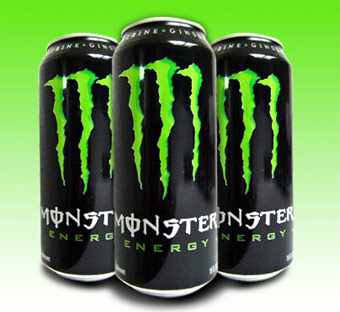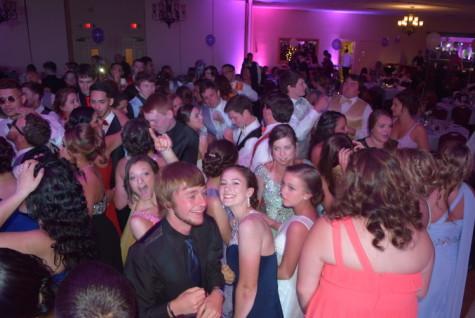Are Energy Drinks Really a Monster?

During those cold and dark mornings when you feel like it is hard to get up, do you think you need an energy drink to start off your day? Think again. Recent reports from the U.S. Food and Drug Administration claim that young people, mostly teens, have had severe reactions from drinking a 24-ounce Monster Energy Drink, which contains 240 milligrams of caffeine. Since 2009, there have been five deaths due to caffeine intoxication. This leads to the question: Do energy drinks have a fatal amount of caffeine in them? FDA officials have released a report stating that energy drink labels do not always include the amount of caffeine in their product, and when they do, it is often inaccurate.
The recent death of a 14-year-old girl, Anias Foruine, who died after drinking two energy drinks within 24-hours, has the country, and more specifically the girl’s parents, questioning the drink’s safety. Foruine’s parents are suing Monster Energy for their daughter’s death, claiming that the company did not have any warnings about the risks that come along with drinking its products. Monster has avidly defended their company and denies any wrongdoing. The highly publicized lawsuit is currently awaiting trial. Starting in 2007, supplement makers, including Monster, Red Bull, and 5-Hour Energy, have to report to the FDA with any cases of injuries or deaths relating to their product. Since then, Monster Energy has only reported the one highly publicized death of Anias Foruine. Recent FDA reports have revealed 20 more reports against the drink, including four more deaths and the rest being injuries, some reported as life-threatening that were not given to them from Monster. Another discovery relating energy drinks and death is due to 5-Hour Energy. A summary of FDA reports states that 5-Hour Energy has been brought up in over 90 filings of injuries and 13 deaths.
In light of these recent events is it still advisable for teens to rely on energy drinks? Some say the side effects make consuming the drink not worthwhile. Holyoke High Junior, Abbey Keeler says that the side effects were too much. “It might seem like it helps at first, but the side effects after it aren’t worth it. It messed up my whole eating and sleeping habits.” Along with ruining eating and sleeping habits, energy drinks also commonly cause palpitations, chest pains, and headaches. Other natural remedies for an energy boost are proven more sufficient and without all the risks. A cup of coffee has over 100 less milligrams of caffeine in it than an energy drink, and a cup of tea only has about 40 milligrams. Normally about 300 milligrams of caffeine is not all that bad for us. Because everyone responds differently to caffeine, and even small doses can trigger side effects for some people, it is important to know how your body reacts to caffeine before consuming it.







